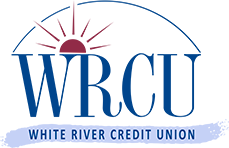Cyber Security
Protecting your money and your information are among the highest priorities to the White River Credit Union. Part of protecting you and your information comes from educating you about safe online practices, how to spot potential scams, and how to monitor your financial and credit health. All of these things can help you prevent becoming a victim of financial crimes, or how to spot them quickly when they do happen and stop them in their tracks.
Please check out these following resources to learn more, and if you believe you have been a victim of fraud please reach out to us so that we can take steps to protect your account.
- Federal Trade Commission - FTC's site for reporting identity theft and the steps to take for recovery.
- Common Scams and Frauds - USA.gov's resource to keep up to date with the most common scams and frauds - including COVID-19 scams, telephone scams, lottery scams, banking and investment scams, among others.
- Online Safety - learn how to protect yourself online, understand the types of internet fraud and find resources on reporting internet fraud.
- StaySafeOnline.org - even more resources to learn about how to tell if your computer has a virus and what to do about it, how to spot a phishing e-mail, online romances and dating scams, vacation and travel security tips and so much more.
- Cybersecurity Awareness Month - October is Cybersecurity Awareness month! This government declared awareness month is a collaborative effort between the Cybersecurity and Infrastructure Security Agency (CISA) and the National Cybersecurity Alliance (NCA). This link will help you learn about this awareness month and provide more resources on learning about the CISA's cybersecurity awareness program and how to join.
- Additional Scams and Crimes Resources - the FBI's resource on common frauds and scams, including consumer fraud, elder fraud, holiday scams, skimming and more.
- If you believe you or someone you know has been a victim of fraud against the elderly, please contact the National Elder Fraud Hotline at 1-833-FRAUD-11
- Protect Yourself On the Internet - the FBI's steps to protecting yourself online.
- Annual Credit Report - It is an important step to watch your credit and monitor the accounts that are opened with your information. Request your free annual credit report and make sure the information is accurate. There are also tools like Credit Karma that can help you monitor your credit activity.
- Safeguard Your Facebook Information - WRCU news posting regarding protecting your data on Facebook.
- Keep Your Accounts Safe - WRCU news posting regarding steps you can take to keep your accounts safe online.
If you believe your identity has been stolen, follow these steps:
- Contact your financial institutions
- Notify any other creditors
- File a police report
- Call the FTC hotline at 1-877-ID-THEFT
- Contact the major credit bureaus and request a "fraud alert" be put on your credit profile.
- You may need to follow up with utility companies, Social Security, the Post Office or the DMV depending on the situation.
- Make sure to monitor your accounts and information and report any issues that you find.

